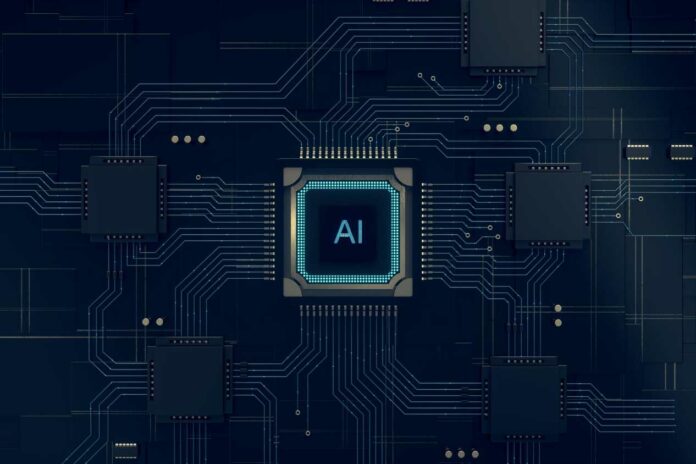Although AI chips are made to process AI tasks, their high power consumption has hampered their practical uses. Professor Zhou Jun and his colleagues at the University of Electronic Science and Technology of China (UESTC) reduced power usage by addressing this issue through algorithm and architectural optimization.
Scientists have unveiled two ultra-low-power artificial intelligence (AI) chips with record-breaking performance. Scientists say these are the world’s most energy-efficient artificial intelligence (AI) microchips. They are so small that they can be equipped inside the smart devices.
The first chip is designed to fit inside the smart devices to enable voice control. This chip excels in keyword spotting and speaker verification by recognizing the voice signals of a target speaker.
The essential advantage of this new AI chip lies in its ability to overcome the limitations of standard voice recognition systems. Unlike traditional systems, this chip can accurately recognize the target speaker’s speech even in noisy environments with distractions such as television, music, or conversations. This capability enhances its effectiveness and reliability in real-world scenarios.
The device exhibits impressive energy economy with less than two microjoules for each recognition. It sets new global standards for energy efficiency and accuracy in speech recognition technology, boasting an accuracy rate of over 95% in quiet scenarios and 90% in noisy environments.
During a system demonstration, the tiny one sq cm (0.155 square inch) chip was successfully integrated into a 3 cm x 3 cm microcontroller unit inside a toy automobile, giving precise control over its motions.
Smart homes, wearable technologies, and intelligent toys are just a few of the low-power voice control applications the chip may use. Its small size and low power consumption make it perfect for integrating into many devices, adding reliable voice control functionality.
The team’s second device, displayed at the conference, is intended to identify seizure signals in epileptics. Explicitly designed for wearable technology, the chip uses electroencephalogram (EEG) identification to identify continuing epileptic seizures, allowing sufferers to get therapy or medical attention promptly.
Due to the rare nature of seizures and the requirement for hospitalization, obtaining high accuracy in seizure detection has traditionally required considerable patient seizure data for training. This approach is time-consuming and expensive. The researchers created a zero-shot retraining technique to overcome this difficulty. This approach achieves a remarkable accuracy rate of over 98% by optimizing a pre-trained AI model to accurately predict seizures in unseen data without collecting seizure signals from patients.
Patients use the device naturally and only undergo a two-minute calibration process before using it. This calibration makes the device’s ability to identify distinct signal characteristics possible, which improves its ability to identify epileptic seizures.
This chip achieves an exceptional average recognition energy consumption of approximately 0.07 microjoules, making it the most energy-efficient design globally, thanks to breakthroughs in feature extraction and on-chip learning engines.
The official report notes an astounding 90% reduction in energy usage and a noteworthy 10% improvement in accuracy compared to a chip demonstrated at the previous year’s conference.
Furthermore, the gadget has potential uses in areas other than seizure detection, such as brain-computer connections and sleep tracking.
Real-time EEG readings from a wearable brain-computer interface device were sent over Bluetooth to the test board during an ISSCC demonstration. The device was modified to identify hypothetical motor orders, allowing for controlling a robot’s forward, backward, and stop movements.
The team presented two of these innovative chips at the IEEE International Solid-State Circuits Conference (ISSCC) 2024, the Olympics of the integrated circuit (IC) industry.
